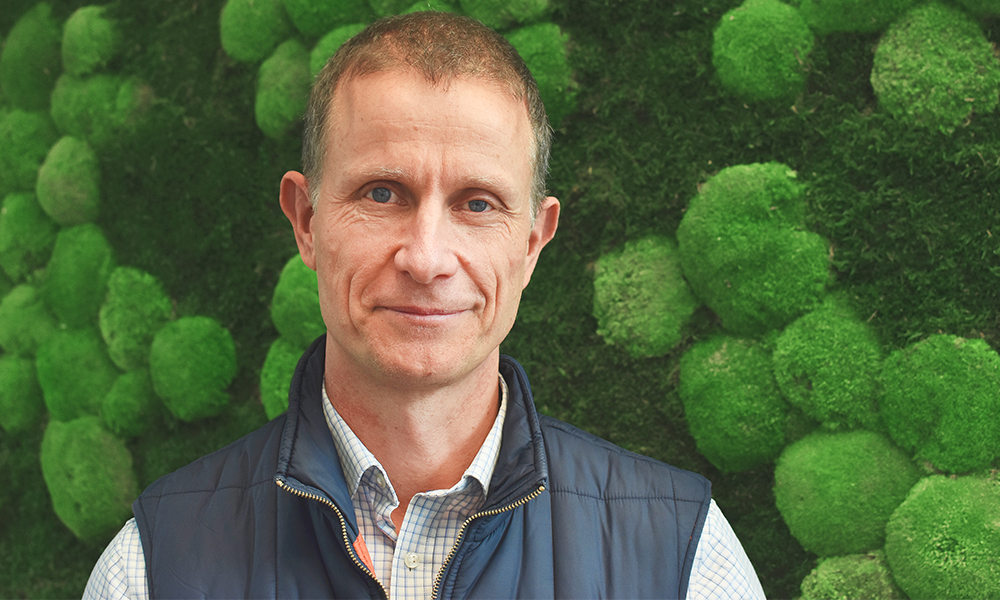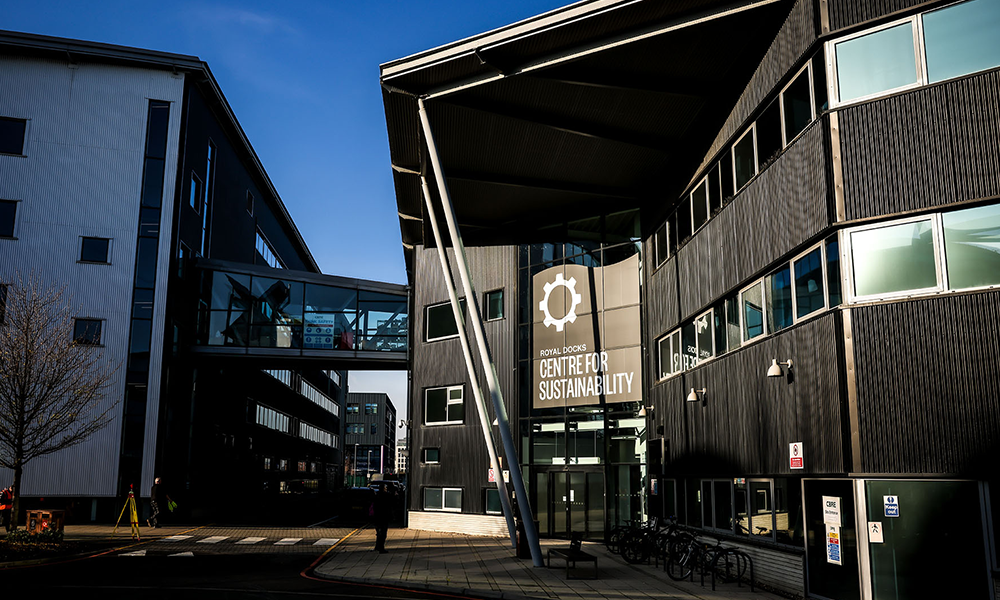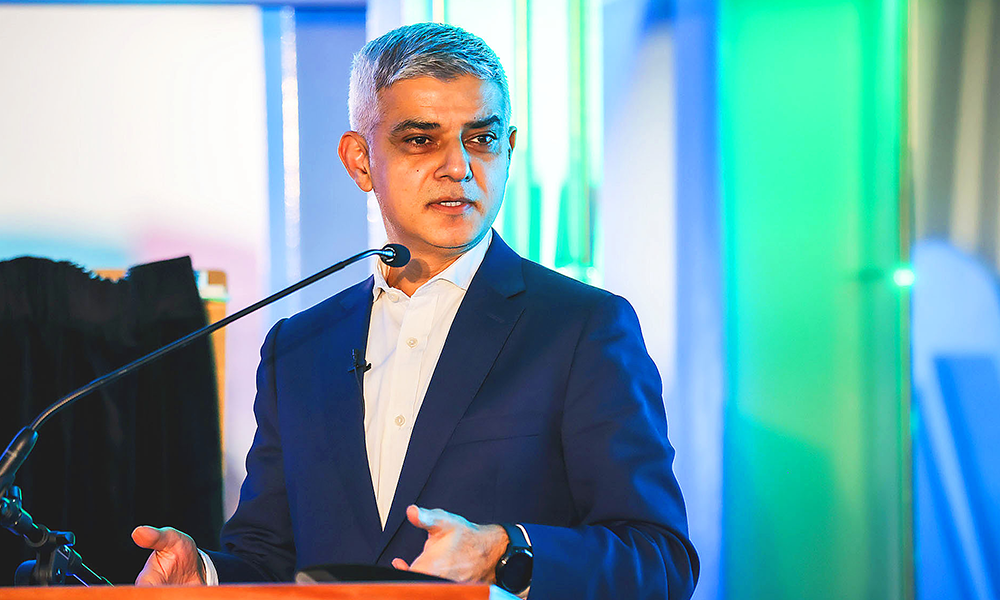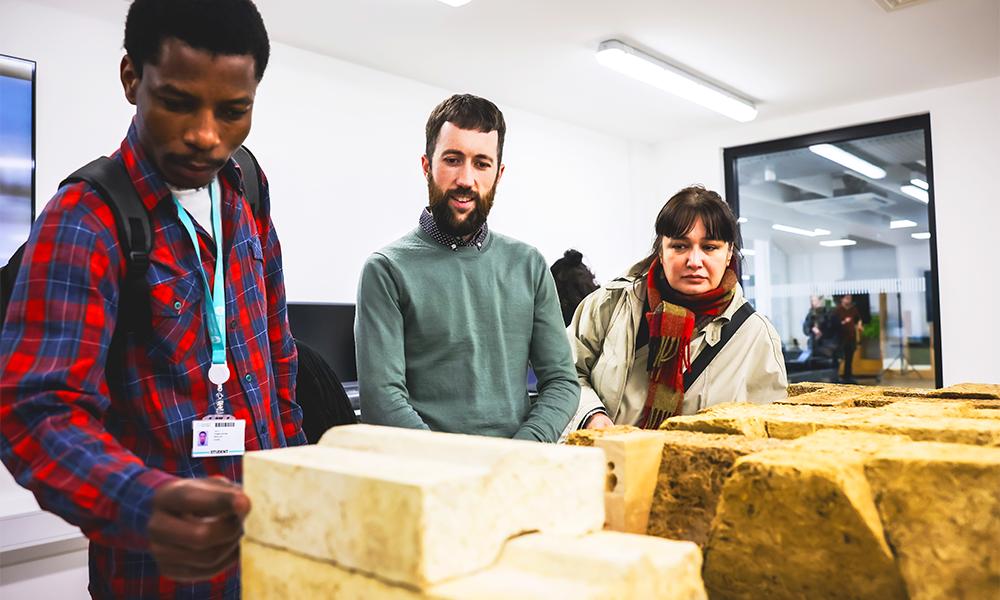Director Robert De Jong and his team aim to drive the green agenda in east London by convening stakeholders at the new facility

Subscribe to our free Wharf Whispers newsletter here
On a dark day, it might be tempting to look at the state of the planet and be discouraged.
Globally we’ve had the warmest February on record, yet ministers seem content to water down green policies.
Populist politicians and commentators bewail what they see as the madness of abandoning coal and gas.
Others argue that the UK’s emissions are so small in comparison to other parts of the world that there’s no point in making any changes at the supposed expense to our quality of life.
Early withdrawal symptoms for a culture hopelessly hooked on fossil fuels?
Perhaps. But nevertheless the voices have become a potent lobby.
The eastern extension to ULEZ hardly raised a peep when it came to Docklands.
But west London was a different story, with opportunistic politicians hijacking a poorly articulated campaign to target the Mayor Of London and, arguably, scrape a by-election win in Uxbridge.
There’s danger here. People like the status quo and yet, ULEZ has seen some pollutants fall by as much as 46% in its first year in central London.
That’s cleaner, fresher air – with around 290,000 tonnes of CO2 emissions prevented from fouling the atmosphere and contributing to the heating of the planet.
Will this single measure save us? No. Not on its own.
But it’s a measure taken in a major capital city, that’s delivering myriad benefits.
This is a strong recipe for inspiring others.

It matters what we do here because the ideas and technology necessary to address the massive problems we face, need both places of generation and implementation.
That’s why projects like the University Of East London’s recently launched Royal Docks Centre For Sustainability (RDCS) are vital for the survival of our species.
Part-funded by the Mayor and Newham Council though their Royal Docks Team initiative, the facility provides space for projects, will be open to the community and will soon boast a “vibrant cafe”.
But beyond the, doubtless, sustainable coffee, it has another role.
Its task is to bring people and organisations together to improve sustainability in an area that’s undergoing billions of pounds of regeneration in a borough fighting deprivation.
“If I could have one wish, it would be that this centre has a driving influence on the Royal Docks, that the innovation created here really plays out and makes sure that this community and London itself become exemplars,” said Robert De Jong, RDCS director and the man whose job it is to steer the facility as it evolves and develops.
“We have a regeneration scheme in the docks that is forecast to grow significantly over the coming years and it should be sustainable.
“The centre’s role is as a convener, both for our schools at UEL, our research centres, the local community and industry.
“Our aim is to bring them all together through effective programming and setting themes for ourselves.
“I would like to see ambitious goals set for the Royal Docks such as the establishment of a clean-tech cluster so the businesses that come through here are really innovative and set up for the future.
“Also that the plan for urban design – the way the buildings are made and how transport and urban connectivity flow through the docks – is really low carbon.
“There’s a lot of talk about this but, when it comes down to reality, there can be stark differences in what’s delivered to what was mooted. We have a real opportunity here to unleash these ideas and ask what we can do differently.
“How can we engage with the waterways, the transport system and boost biodiversity as well?”
To address some of these questions, RDCS comes fully equipped with some powerful tools and facilities, namely a Sustainability Research Institute, a Sustainable Enterprise Centre, an Augmented + Virtual Reality Centre, a Renewable Energy Lab and a Maker Space.

Then there’s a Data Centre, a Living Lab, a Living Library, a Careers Office, a Hackathon space, Business + Community Tax And Law Clinics and more besides.
It stands as both a physical connection to UEL’s schools as well as a conceptual one, aimed at spotlighting the work the university does and mixing it with ideas and influences from other organisations and groups.
“We take a holistic view,” said Robert.
“Sustainability means that we’re governing with an ethical outcome for society and the environment, that we’re thinking outside of our own jurisdictions and that we’re also really understanding the stewardship of products and striving to improve how we use resources.
“We can’t just keep creating pollution and heating the globe.
“We need to think about how to manage the whole balance of our ecology.
“At the moment we’re at a certain rate of growth, so we need to ask if that is sustainable.
“The centre is based on a number of things – firstly collaboration and creation in the holistic sense of sustainability, driving it across east London, around Newham and in Royal Docks in particular.
“In a couple of years’ time, I would like to see this centre established at the forefront of pushing the sustainability agenda – that we’re able to make a measurable impact in terms of social outcomes.
“At UEL we already have great diversity in the student body, among staff and in our policies, but how far can we go?
“That’s not just looking at employment, it’s in the supply chain and it’s driving that wider agenda and our goal of a healthier planet.
“I’d like to see this centre become a catalyst for enabling these things and also to act as a demonstrator.”
Part of the three-storey centre’s mission then, will be to constantly shine spotlights on the work being done in UEL’s schools, while simultaneously supporting and showcasing the work of businesses.
“There is sustainability in each of our schools but it’s hidden away and we’re not always good at shouting about it,” said Robert.
“For example, the Sustainability Research Institute is doing amazing work on bio-based building materials such as Sugarcrete, made from waste products when sugar cane is refined.
“But equally there are fantastic projects in engineering and fashion too.
“Then there’s the wider ethos around our campuses themselves, with a opportunity to embed sustainability in the governance of UEL itself and to ask how we involve every member of staff in that process.

“We’re also about to launch an accelerator programme, starting with a small number of organisations with combined interests.
“We have a focus on fintech and how to develop financial technology and also on entrepreneurship with a faculty looking at how we organise training around creating a business and skills development.
“We can all come up with business ideas but in reality growing a company and overcoming the hurdles of finance and development can take many years.
“However, with the right support and education, firms can really grow successfully.
“We want to create cohorts through these programmes, but we also want to talk with external partners to run some of them, so it’s not just UEL.
“Key to the whole project is that the centre is a place where we can bring in local stakeholders such as Excel, London City Airport and Siemens, which is leading on UEL’s work to achieve net zero.
“Before, we were promoting the story of how exciting the centre will be, but since it’s opened, the dialogue has changed.
“People understand its principles and how we’re really striving for local impact, employment and engagement as well as picking up new ideas.
“Those from the community, wider industry and UEL itself who have seen the centre, seem really pleased with the space and understand how it is relevant.
“There will be entrepreneurs and scaleups based here, but people can also come for advice with clinics that can be used free of charge by locals from the community.
“We also want to bring in more international organisations – we need the whole mix to be right – to ensure that what we’re creating here is a framework of approach so people will feel this centre is a new space of inspiration.”
There you have it, a beacon of innovation in the Royal Docks, that people across the world can look to.
Find out more about the Royal Docks Centre For Sustainability here
Read more: Why MadeFor office space in Canary Wharf is a vital part of its offering
Read Wharf Life’s e-edition here
Subscribe to our free Wharf Whispers newsletter here
- Jon Massey is co-founder and editorial director of Wharf Life and writes about a wide range of subjects in Canary Wharf, Docklands and east London - contact via jon.massey@wharf-life.com



